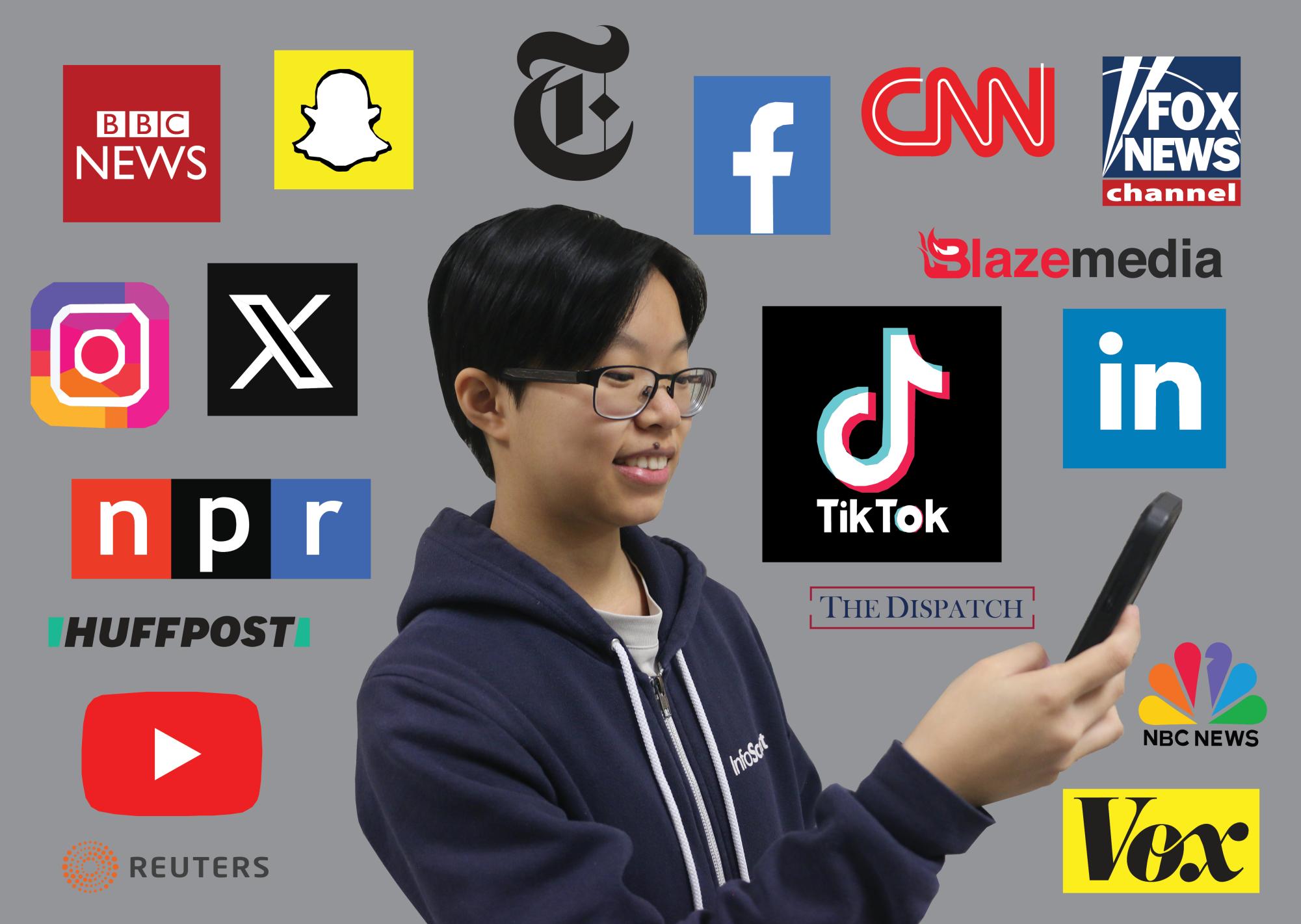Like many of his classmates, sophomore Jackson “Jack” Miller uses his free time in classes to scroll on his phone. However, Miller has different interests than his peers. While they tap away at Instagram posts and TikTok videos, he said he immerses himself in current events and global politics. Miller said social media is just not that interesting to him.
“There’s not really much to see on it,” Miller said. “You (also) have more time to do other things. You can focus more on your classwork and school, (and) get higher grades.”
But Miller’s perspective isn’t typical. According to the University of Maine, in just the past eight years, the number of social media users has more than doubled, rising from 2.07 billion users in 2015 to 4.48 billion users today. However, the increase in social media usage in recent years has led to more and more issues among its users, especially when it comes to social-political issues.
Senior Terri Xie said they have seen these issues rise and said they prefer to use social media for communication, not politics.
“Most of the time I just use (social media) to talk to my friends,” Xie said. “Sometimes I repost something quick on my story, or I’ll say something about a news article I read, but most of the time I do use (social media), I’m really just talking to my friends.”
Xie said they think many of the benefits of using social media for social-political issues are generally overshadowed by the negative impact social media has on politics.
“(Social media makes) it easier to learn about different political issues and stuff like that, but also because everyone is on it, there’s a lot of misinformation that can spread really fast,” Xie said. “The information can get super extreme at some times and people start fighting over it. I think that kind of outweighs the good (parts).”
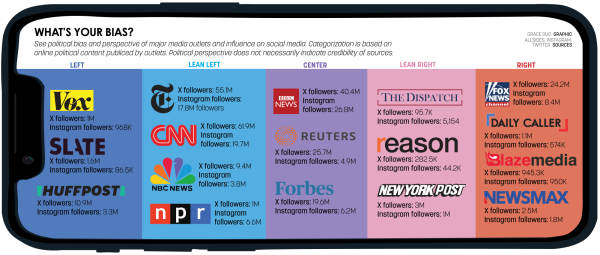
Miller also said he has seen social media polarize political issues and create a hostile environment.
“You can get really wrapped into one bubble,” he said. “You’re not exposed to every single news source out there; you’re just exposed to what you want to see.
“(Social media) can definitely turn people against each other because they (differ more) in their beliefs and they don’t often interact with each other outside of social media, so they don’t really know the other side’s positions and they aren’t really used to debating their ideas,” he added.
In addition, communications department chairperson Theresa Ramos said social media can create an information vacuum that traps people within their own views.
“Once a person starts to read particular articles, the algorithm just gives them more similar articles, thereby fulfilling any predispositions to a particular thought and feeding it more and more,” Ramos said. “The algorithm is not going present you with the opposite point of view, thus polarizing (ideas) and (forcing) people into believing (that) there is just one thought process.”
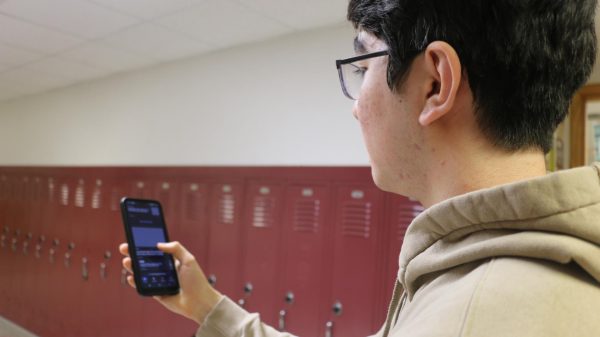
(Mahitha Konjeti)
Xie said they agreed, and said this kind of polarization can create divides between groups of people.
“(People will) use social media (and) it starts to only reflect the views they have; it’s like an echo chamber,” Xie said. “Some people become intolerant to the other side because the other side can be so extreme, and they only see the extreme side. It just makes people really angry with each other.”
Ramos said polarization touches more than just social-political issues and can be used to keep people on the social media platform for longer.
“It’s only going to give you stuff it thinks you’re going to like,” she said. “It does that with things to buy, people to see, or whatever it is. Whatever platform it is, they want you to stay on the platform longer and longer, so the algorithms are built to make sure you do that, and the way they do that is they only give you things you like.”
Additionally, Miller said people will intentionally create false narratives and modify information to gain more interactions.
“Some people will (skew information) on purpose,” Miller said. “What spreads the most is the most interesting, which can be skewed oftentimes. What spreads on social media isn’t necessarily the most true thing, it’s just the most popular thing, the thing that’s most exciting.”
Miller said getting news from credible sources is incredibly important when it comes to social-political issues.
“Sources that are not credible can give you information that is not true just to be more interesting,” Miller said. “(You wouldn’t) actually be informed about issues, or you would believe the wrong thing and take actions that are not aligned with the truth.”
Ramos said she agreed with Miller and said she doesn’t think social media is an adequate source to get credible news from.
“I believe you need to consciously choose your new sources, and if that’s the New York Times, CNN or whatever news agency you prefer,” Ramos said. “You need to consider things like websites like AllSides. (This website focuses on) presenting information on a given social topic or issue from all sides. From the right, from the left, from conservative (ideals), from liberal (ideals) and down the middle. They explain where these news pieces are from and if you are consciously choosing your news in that way, you are doing a better job as a consumer of information.”
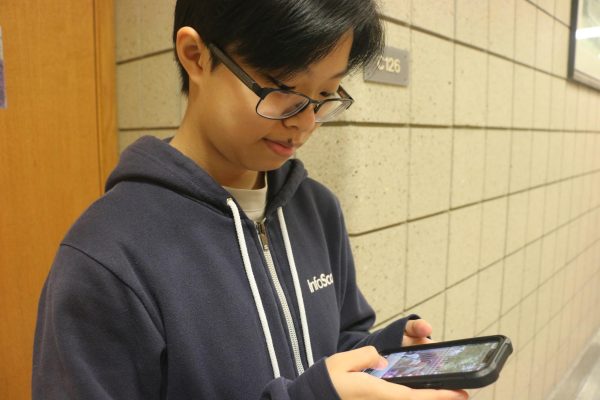
(Mahitha Konjeti)
Moreover, Xie said perspectives pertaining to social-political issues can become skewed due to the influence of social media.
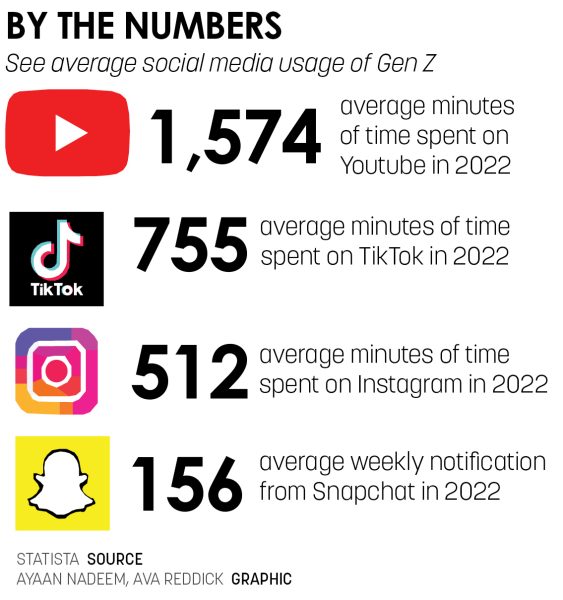
“It is not just because of social media, but social media definitely has a much larger impact on skewing views than most people think,” they said. “I definitely think the polarization has a negative impact. Even if there are good impacts, there isn’t something that can justify the extreme polarization that comes from social media.”
Miller said he ultimately agreed with Xie about the drawbacks of using social media to discuss social-political matters because of its controversial nature.
“People aren’t able to communicate with each other and come to a reasonable compromise,” he said. “People are separated from each other as they don’t really want to work together.”
Similarly, Ramos said the idea of anonymity in social media affects the ways individuals act online.
“People tend to comment and say things on social media that they wouldn’t necessarily say to a human being standing in front of them,” she said. “(That makes) it really easy to get ideas about another person on social media and say something against that person and not really think of them as a person.
“People (who are older) were always told to (never talk about religion or politics),” she added. “It is kind of true, there are certain places where you do talk about these things, and certain places where you don’t talk about these things.”
Ultimately, Ramos said in a social media world filled with incomplete thoughts, deliberately misconstrued perspectives and fragments of ideas, politics shouldn’t be discussed.
“Social media is great in certain ways,” she said. “I think it has its benefits, but it also has its drawbacks, and the discussion of politics or serious social issues that affect human beings is not one of those positives. I think we should find other ways to read and discuss and think about politics other than Facebook or Snapchat.”

